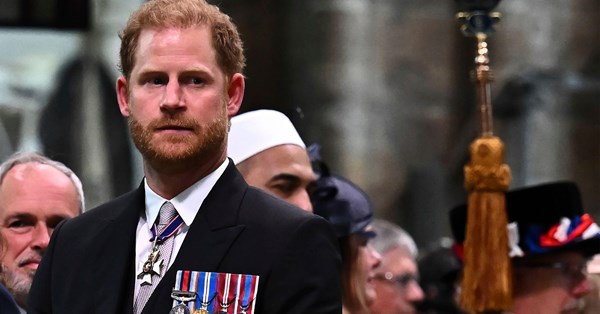IN THE spring of 2002, I was asked to preach at a Sunday-morning service at Eton College. Looking down from the pulpit, I recognised the ginger top of Prince Harry, who appeared to be immersed in amused conversation with his neighbour, which made me smile. Five years earlier, I had been present at the funeral of Diana, Princess of Wales, and heard Earl Spencer berate the Royal Family for its treatment of Diana and promise to protect her two sons.
Harry, with William, will have heard all that. He would also have heard the wave of applause from the crowds outside surge through the Abbey congregation. He may have felt, as many of us did on that day, as though a revolution was imminent.
Yet the moment passed. Years intervened. Harry had his teenage follies and his first love affairs. A few years after I spotted him in Eton chapel, he travelled to Lesotho, the beginning of his passion for Africa. In 2006, he set up his charity Sentebale. In 2014, he started the Invictus Games.
Since his decision to step down from royal duties, he has had a bad press. The sharp criticism of him and Meghan has been vulgar and cruel. He now feels that his future life is in California and he will never feel safe enough to bring his family to Britain, even though it is his homeland.
If trauma replays from past to present, then Prince Harry’s recent behaviour can be seen as the result of grievous trauma. His book, Spare, worsened his alienation from his family (News, 13 January 2023). He has seen his African charity fall apart amid acrimony. His BBC interview last week, in which he said that his security concerns had been dismissed by “a good old Establishment stitch-up”, reveal his ongoing grief and confusion.
I grieve for that ginger-topped teenager I once preached to. I believe that he is a decent man. But, so far, he has found no way to switch off the trauma in his head. He has said too much for relationships to heal. He claims to have forgiven his father and the Royal Family; but it is clearly a qualified forgiveness. The repeated demand for police protection, and the insistence that his father could simply sort this out by ordering it, sounds as though it comes from the 12-year-old who was required to walk behind his mother’s coffin. What he might have picked up from attending morning service in Eton chapel was that forgiveness involves not only making peace with the offender, but, eventually and at great cost, giving up the role of victimhood.
The latter is far harder, far more demanding, and, in the end, far more important. But the logic of the Christian faith suggests that it is only when victims forgive “from the heart” that they that they themselves can find liberation.
















